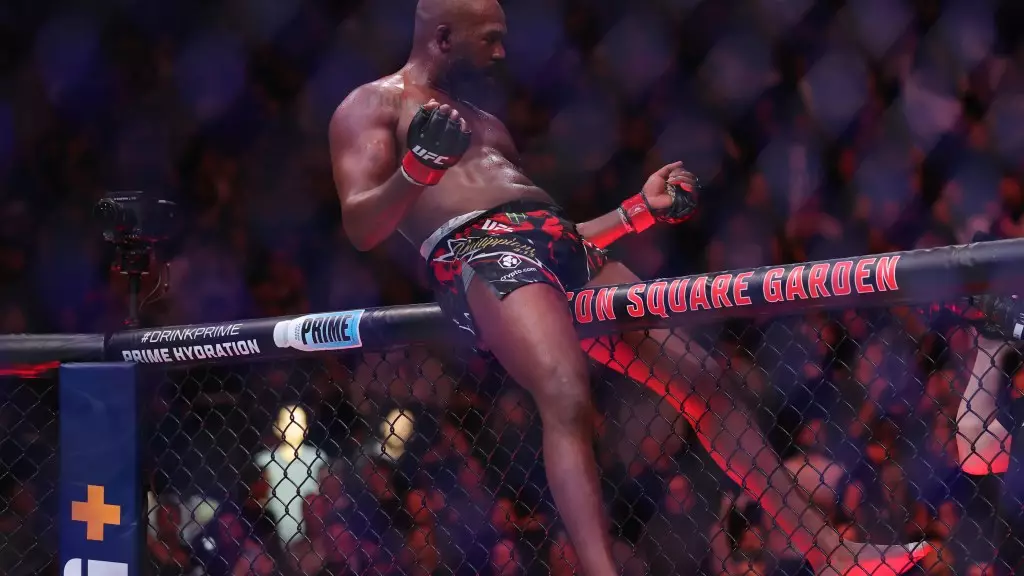The debate over who deserves the title of the UFC’s top pound-for-pound fighter is a recurring theme in mixed martial arts (MMA). Recently, this topic gained momentum after lightweight champion Islam Makhachev’s decisive victory at UFC 311, where he submitted Renato Moicano in an impressive display of skill. Despite his rapid ascent and being acknowledged by UFC CEO Dana White as the leading pound-for-pound fighter, not everyone is convinced, and Anthony Smith is among the dissenters.
Anthony Smith, a respected figure in the UFC, openly voiced his skepticism regarding Makhachev’s recent ranking elevation, insisting on the supremacy of Jon Jones in the pound-for-pound conversation. Smith’s argument is centered around the long-term dominance and historical significance of Jones’s career. He emphasizes that while Makhachev’s recent performances are praiseworthy, Jones’s ability to triumph over multiple generations of fighters sets him apart.
Smith acknowledges that Jones’s extended periods of inactivity have marred his reputation, leading some to question his status. However, he argues that the depth and consistency of Jones’s accomplishments should still earn him the top spot. Notably, Jones has never faced the adversity of a legitimate loss throughout his career, further augmenting his argument for being considered the best.
The Impact of Makhachev’s Victory
Islam Makhachev’s recent engagement with Renato Moicano was a calculated risk that showcased his readiness and fortitude. By stepping in on short notice, Makhachev displayed not just talent but also a mindset geared towards seizing opportunities. His victory not only secured him his fourth title defense but also raised questions about the future of the lightweight division. Makhachev’s performance has undoubtedly added a fascinating layer to the ongoing discussions about fighter rankings and their implications.
Yet, as he climbs the ranks, Makhachev’s impact reverberates through other weight classes, particularly concerning Jon Jones and the heavyweight championship picture. The impending title-unification bout between Jones and interim champion Tom Aspinall looms, and there is notable speculation about how Makhachev’s ascension might complicate negotiations. Smith’s reflections on this matter underscore the uncertainty that hangs in the air; the jubilance surrounding Makhachev’s rise could herald changes in how the UFC approaches future matchups.
The dynamic nature of pound-for-pound rankings in the UFC highlights an interesting struggle between past legacies and emerging talents. As fighters like Makhachev continue to make waves in their divisions, the landscape of the sport is compelled to evolve. Smith’s concerns may suggest that the UFC’s decisions might hinge more on performance metrics and less on historical context—a shift that could heavily influence upcoming matches and fighter interactions.
Ultimately, whether Makhachev deserves the top pound-for-pound ranking will continue to fuel debates among fans and analysts alike. As the fighters grapple with their legacies, UFC matchups will increasingly serve as the battlefield where these critical discussions over rankings and worth will play out, ensuring that the sport remains as captivating as ever. The journey of skill, determination, and fight strategy will be paramount in answering who truly deserves the title, casting a shadow of intrigue over the future of both Makhachev and Jones.

